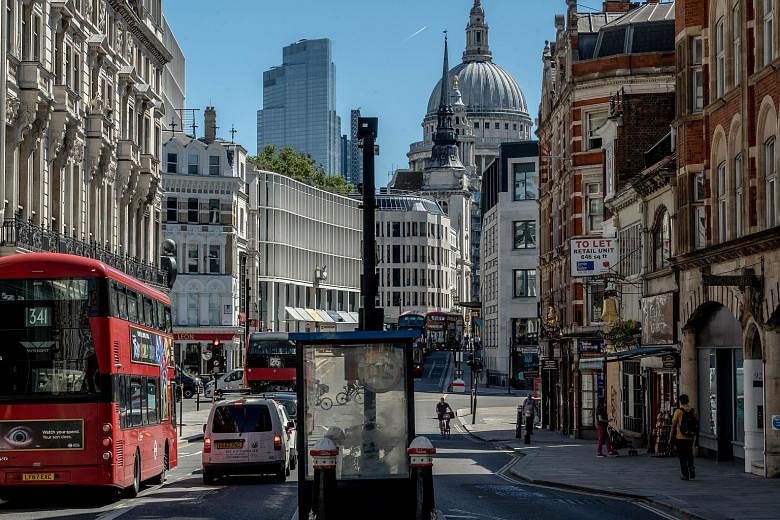LONDON • Britain's businesses had a clear response to British Prime Minister Boris Johnson after he told them to get ready for a no-deal Brexit: Do not do this in the middle of a pandemic.
Mr Johnson issued his threat on Friday, saying the European Union was refusing to "negotiate seriously".
His remarks were quickly followed by warnings from the nation's trade groups of the cost and disruption that would be triggered by a departure from the bloc without a trade agreement.
"After four years of negotiations and so many hurdles crossed, this is no time to give up," Ms Carolyn Fairbairn, director-general of the Confederation of British Industry, the nation's biggest business lobby, said in a statement.
"A deal is the only outcome that protects Covid-hit livelihoods at a time when every job in every country counts."
The Institute of Directors said a poll of its 26,000 members found that 54 per cent thought that ending the Brexit transition period on Dec 31 without a trade agreement would exacerbate the pandemic's impact on their businesses.
The nation's smaller companies had a similar view. They still do not know what trading relationship they will face with the bloc as time runs out, and many do not have the resources to prepare, according to national chairman of the Federation of Small Businesses Mike Cherry.
"They're being told to both prepare and simultaneously manage a fresh set of Covid restrictions," he said in a statement. "Many simply don't have the time or money to make adjustments, even if they want and need to."
Mr Johnson had previously said that last Thursday would be the deadline for assessing whether there was a clear path to a trade deal - if not, that would be the time to walk away from talks.
His announcement that businesses must prepare for the resumption of trade tariffs and quotas with Britain's biggest trading partner came just as his government tightened restrictions in a number of British regions to contain the spread of the coronavirus. London is among those facing stricter rules.
Ms Catherine McGuinness, policy chair of the City of London Corporation, highlighted the strains caused to the financial industry from the push to get more people to work from home, as she urged that government efforts are "redoubled" to reach a Brexit deal.
While any deal now would be "very light on detail", it would be "much better if we leave on a harmonious basis than have a no-deal exit", she said in an interview. "My biggest fear is an acrimonious exit."
Britain's retail and food and drink industries, which together employ well over five million people, have reacted with dismay to the prospect of a return of tariffs and snarls at key entry points.
Shops are already struggling to cope with the closures and distancing required by virus containment measures, as well as the surge in online shopping.
Mr John Allan, chairman of Britain's largest supermarket chain Tesco told Bloomberg Television on Friday that there could be short-term shortages of some fresh food if there was "dislocation" at British entry ports.
"There is nothing retailers can do to insulate consumers from the impact of £3 billion (S$5.26 billion) of new tariffs on food in our supermarkets," said Ms Helen Dickinson, chief executive of the British Retail Consortium, in a statement. "Moreover, new checks and red tape that will apply from Jan 1 will create additional disruption in the supply of many goods that come from or through the European Union."
Carmakers, whose just-in-time factories depend on an uninterrupted flow of goods through ports, share the concerns about queues of trucks stuck at the border.
Meanwhile, ratings company Moody's cut Britain's debt rating on Friday over the huge economic hit from the coronavirus crisis, Brexit and the lack of clear budget plans from Mr Johnson's government.
Moody's lowered the rating to Aa3 from Aa2, putting Britain - the world's sixth-biggest economy - on the same level as Belgium and the Czech Republic.
The British pound, which swung between gains and losses through much of Friday, budged only slightly after the Moody's announcement, ending the day little changed at US$1.2915.
BLOOMBERG, REUTERS

